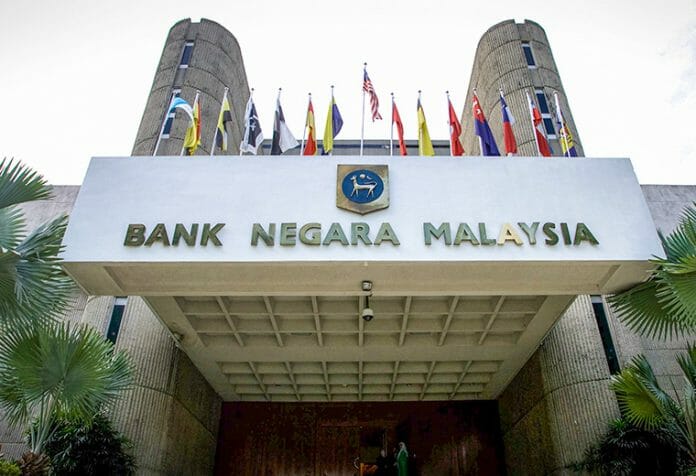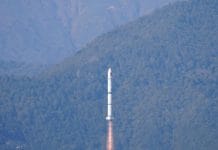Malaysia’s well-diversified economy enables it to withstand risks from China’s slower economic growth as the country does not heavily depend on one particular trade partner or industry, said Bank Negara Malaysia (BNM).
BNM governor Datuk Abdul Rasheed Ghaffour said although China is Malaysia’s second-largest trade partner, it only accounts for 13.6 per cent of Malaysia’s total trade.
“While China’s reopening remains supportive of the global economy, we acknowledge that its pace of recovery has slowed in recent months.
“Nevertheless, the Malaysian economy is well diversified in terms of products and trade partners, thus it is capable of cushioning the impact coming from China,” he told reporters after announcing Malaysia’s economic growth for the second quarter of 2023 here today.
Also present was chief statistician Datuk Seri Mohd Uzir Mahidin.
“As a small open economy, Malaysia is affected by the slowdown in global demand. Like other regional economies, Malaysia’s exports also declined in the second quarter of 2023.
“This was driven mainly by weaker manufactured goods amid a downturn in the global technology cycle and lower commodity prices,” said Abdul Rasheed.
He also noted that global semiconductor sales, which have been on the decline, were showing tentative signs of bottoming out.
Overall, global economic growth was slower this year, mainly due to headwinds of elevated cost pressure, high-interest rates as well as weaker goods rates.
“Global growth is expected to be below long-term average but we do not expect a total recession,” said Abdul Rasheed.
Nonetheless, growth in Malaysia’s economic growth remained well supported by the resilience of domestic demand and strong labour market conditions.
The current account surplus, adequate reserves and the exchange rate would help Malaysia to absorb external shocks, said Abdul Rasheed.
He said that in the second half of 2023, gross domestic product (GDP) growth would have to average 3.7 per cent for Malaysia to achieve 4.0 per cent growth this year.
“We see growth is expected to continue and driven by expansion in the capacity of domestic demand amid the weaknesses in the external demand.
“This is supported by a few factors including continued improvement in labour market conditions, the continued progress of multi-investment projects by the private and public sectors as well as a higher tourism activity,” said Abdul Rasheed.
On the labour market, BNM expects employment to grow by 2.4 per cent this year while the unemployment rate, which stood at 3.4 per cent in June, is to reduce further.
On the supply side, he said the growth would continue to be driven by the services and construction sectors, and BNM expects total trade to improve towards the end of 2023 and to continue in 2024.
On another note, Abdul Rasheed said there was general consensus to implement targeted subsidies from blanket subsidies to address leakages and to ensure subsidies were delivered to the intended recipients.
“Any adjustments to subsidies should also take into account the risk of high prices as part of goods and services,” he added.
In line with this Abdul Rasheed said the Madani Economy Framework will anchor the comprehensive restructuring of the Malaysian economy, supported by several important transformations, such as having a revitalised industrial sector, said Bank Negara Malaysia (BNM).
Governor Datuk Abdul Rasheed Ghaffour said that within the framework, the industrial sector would be supported by quality investments.
“Malaysia’s economic vision also includes creating quality and higher paying jobs, positioning ourselves as a globally competitive investment destination, and becoming a climate resilient and greener economy.
“Besides, it will also improve fiscal governance and transparency, which will enhance confidence from investors and also credit rating agencies,” he said during a joint press conference by BNM and the Department of Statistics Malaysia on the country’s second quarter (2Q) 2023 gross domestic product (GDP) performance here, today.
Malaysia’s economy expanded by 2.9 per cent in 2Q 2023, supported by an improving labour market and the continued increase in domestic demand and tourism activities.
Abdul Rasheed said that among the key initiatives which would be vital in driving Malaysia’s economic vision includes the New Industrial Master Plan 2030 (NIMP 2030), the National Energy Transition Roadmap (NETR), and the tabling of the Fiscal Responsibility Act.
In the short term, he said Malaysia could expect to see positive support for growth from the implementation of several important catalytic projects under the NETR.
“The implementation of catalytic projects, such as those announced under the recently unveiled NETR Phase 1, will also provide support to growth in the medium term.
“In fact, some of these projects are already in progress, with more commencing next year,” he said.
Abdul Rasheed noted that growth continues to be supported by investment activities.
“Financing for capital expenditure remains forthcoming, as also investment intentions. Newly approved investments totalled RM71.4 billion in 1Q 2023.
“Going forward, the economy would benefit from the realisation of new investment and existing projects, particularly large infrastructure projects such as the ECRL and digitalisation projects.
“The progress of these investments is critical not just to support immediate growth but also to lift Malaysia’s future growth potential,” he said.
The BNM governor said household spending would remain the anchor of growth underpinned by continued employment growth, healthy household financial buffers, government policy measures, and easing price pressures.
“Household spending continues to expand, supported by wage growth and ample financial buffers. High-frequency data such as credit card spending and passenger car sales continue to record above pre-pandemic figures.
“In the second half of 2023, households will remain supported by recent measures announced by the government, namely the RM100 e-Tunai for B40s and M40s as well as RM300 and RM200 special assistance for civil servants and pensioners, respectively,” he added.









